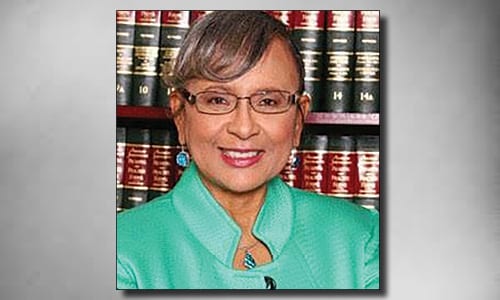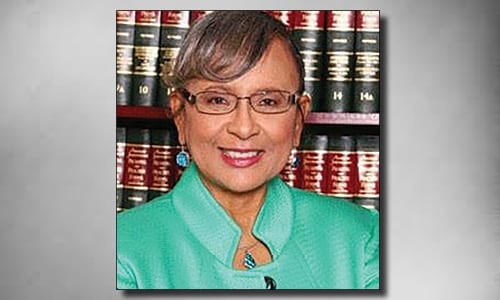Rockdale Constitutional Corner
By Clerk of Courts Ruth A. Wilson

Georgia is among the states that use a grand jury system to decide whether to pursue criminal charges against a suspect. The purpose of the grand jury is to consider the evidence presented and decide whether there is enough probable cause (evidence) to indict someone for the charged crime.
Generally, a Rockdale citizen age 18 or older who has not been convicted of a felony, not an office holder and not mentally incompetent is qualified to serve. No one is exempt because of his or her job, race, color, religion, sex, national origin, sexual orientation, or economic status. Service is for three months, but usually need to meet only one day per month. Rockdale grand jurors receive the same pay as trial jurors, $25 per day of service.
The Rockdale Judicial Circuit empanels a grand jury of between 16 and 23 members to hear testimony to determine if there is enough evidence to indict, i.e., charge someone and move a case to trial. Some states use preliminary hearings to accomplish the same ends, with a judge making the decision instead of average citizens.
The Rockdale Clerk of Courts uses software to randomly select names from a list of potential grand jurors. The Clerk then issues a summons to appear for jury duty. The grand jury, during its three month term, may hear several cases.
Usually, the grand jury rules on cases involving serious felonies including capital offenses, ones punishable by death. Their work is done in secret, and unlike with preliminary hearings, grand jury hearings are closed to the public. This allows witnesses to speak honestly without fear of reprisal or censure. These proceedings also protect the reputations of defendants. Should the grand jury decide not to issue an indictment, there is no negative publicity.
Grand jury proceedings are more casual than courtroom cases as seen on television. There is no judge, and typically no lawyers other than the prosecutor. Grand juries need a supermajority (12 or more), but not a unanimous decision, to issue what is called a “true bill,” which means an indictment. If they don’t concur, then a “no bill” is issued. If the grand jury returns a no bill, prosecutors can make their case again to a new grand jury. If two consecutive grand juries return a no bill, prosecutors can’t try a third time.
Defendants rarely appear before the grand jury, but anyone who is under suspicion of committing a crime or has been arrested should contact a defense attorney. Should a true bill be returned, your criminal defense will need to begin immediately.
Trial juries are impaneled for the length of just one trial. You do not need any special skills or legal knowledge to be a juror. All you need is an open mind and a readiness to work with the other jurors to make decisions. You also need to be impartial — in other words, your decisions must not be influenced by personal feelings and biases. Trial jurors can hear both civil and criminal cases. Even though there are a few differences between civil and criminal courts, the role of the jury generally remains the same.
Trial Jury selection narrows through a process called “voir dire.” It is used by the courts to obtain an unbiased group of people who are truthful and will deliver a clear and just judgment. This basically means that if you are called for jury duty, you will go through a questioning process. This weeds out those who might have connections to the case preventing them from having an unbiased opinion. So even if you’re summoned for jury duty, you might not actually hear a case.
Juries continue to be important to the justice system. Jurors determine the facts of the evidence in the case presented to them. Jury duty is an opportunity to serve the community. We in the court system appreciate your service and will try to make your experience as pleasant as possible. When you are summoned, respond promptly. DO NOT IGNORE YOUR SUMMONS. If you have questions, concerns or special circumstances, just give us a call and we will do our best to work with you. Our Jury Team is here to serve you at 770-278-7902.


![Validate my RSS feed [Valid RSS]](https://web.archive.org/web/20240108205913im_/https://ocgnews.com/wp-content/uploads/2022/07/valid-rss-rogers.png)


